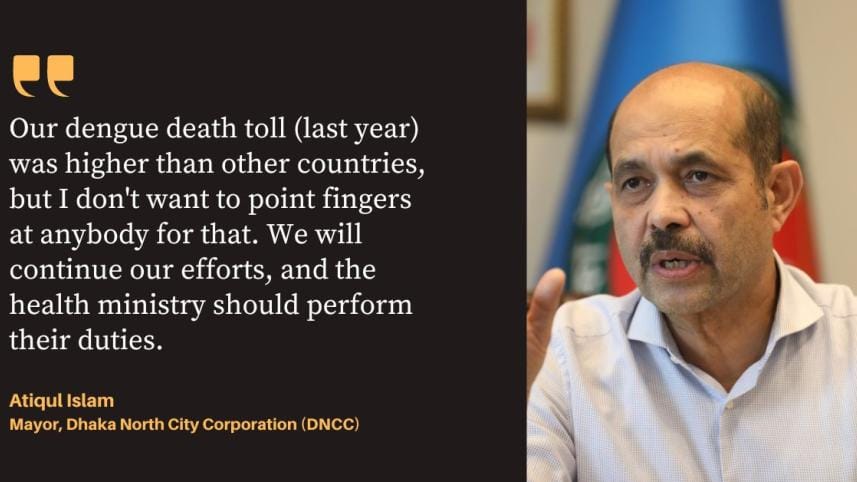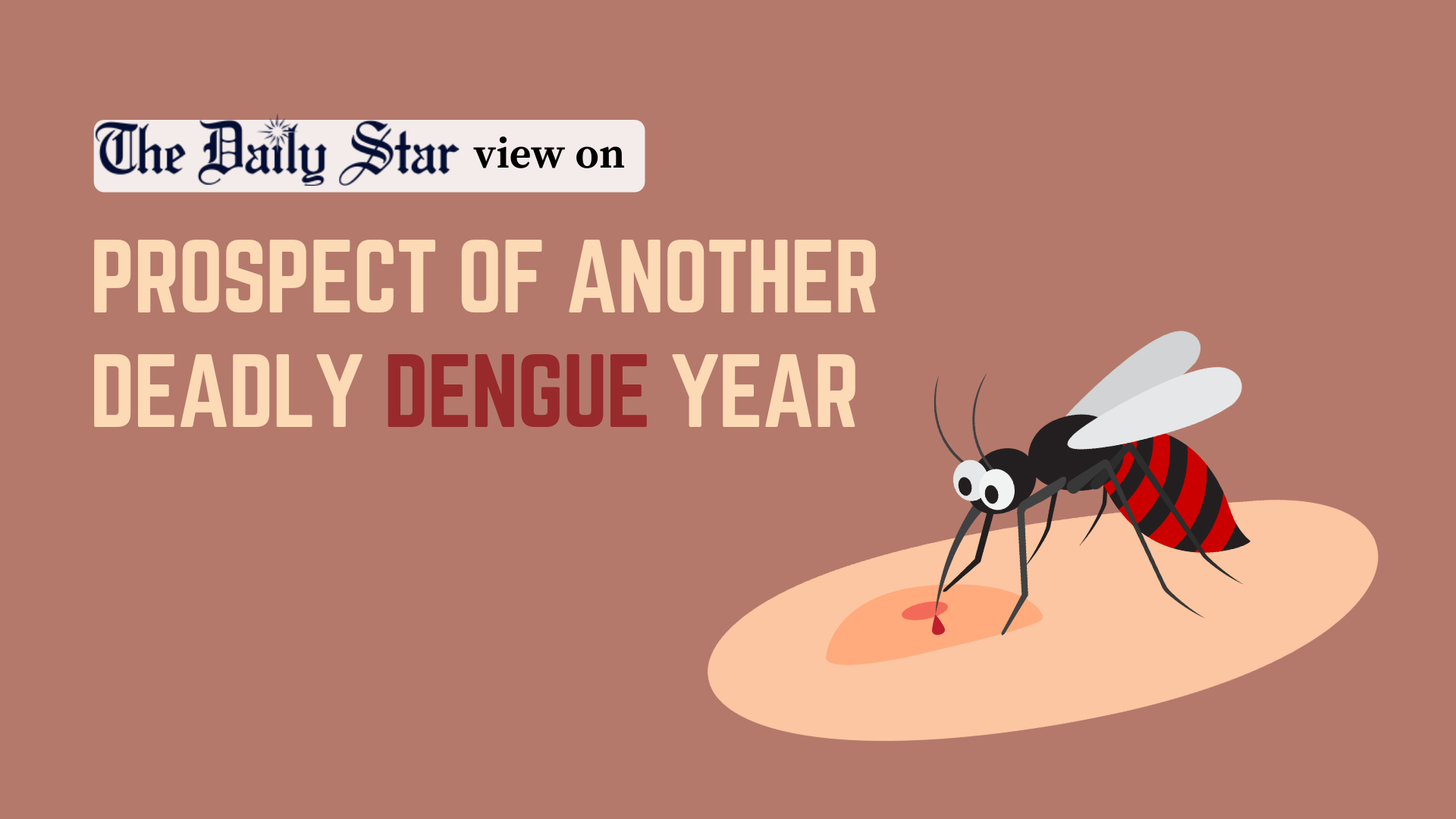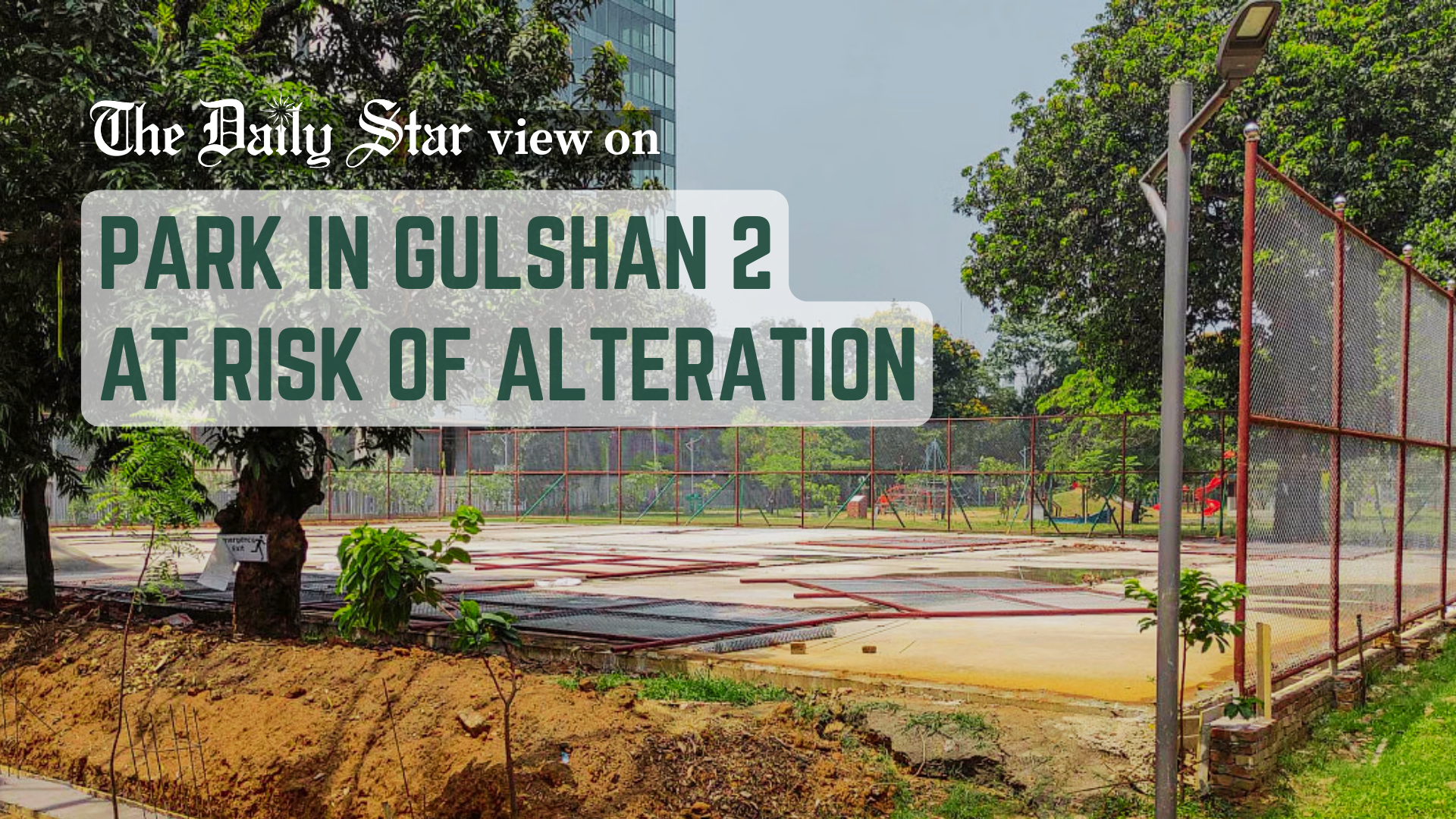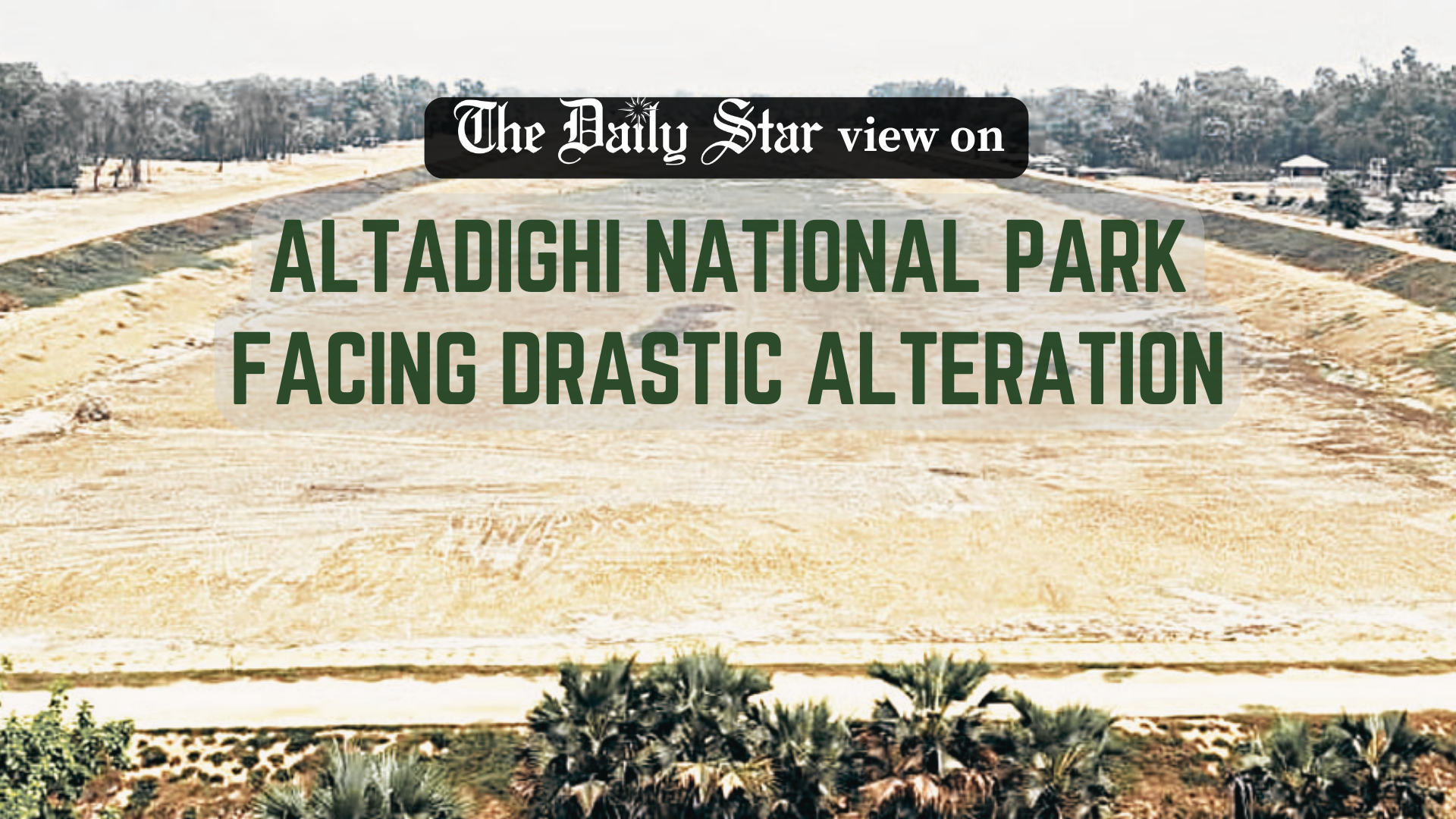‘People will judge if I have succeeded or failed’

Atiqul Islam, mayor of Dhaka North City Corporation (DNCC), who took office on May 13, 2020, has completed four years of his five-year tenure. Speaking with Partha Pratim Bhattacharjee and Dipan Nandy of The Daily Star, the DNCC mayor talks about his achievements as well as failures, the challenges he faced, and his visions for the future.
Your first promise to your constituents was to continue the mosquito eradication programme by using Integrated Vector Management (IVM). But last year we saw the highest numbers of infection and death by dengue in the country. Do you think you were successful in controlling mosquitoes?
Whether I have succeeded or failed, people will ultimately judge. During Covid, no one dared to leave their home, but I personally worked in 54 wards to raise awareness about dengue. The Aedes mosquito breeds in clean water, not in sewage or canals. So, public awareness is very important in controlling Aedes breeding. We have brought every rooftop garden (in DNCC) under the database and under the geographic information system (GIS) map. Global warming and climate change are also responsible for the increase in Aedes mosquito population. But we are continuing our efforts from our position.
Our dengue death toll (last year) was higher than other countries, but I don't want to point fingers at anybody for that. We will continue our efforts, and the health ministry should perform their duties. Last year, we conducted a mobile court to check breeding grounds and fined Tk 3.85 crore for violations of rules. We found Aedes mosquito larvae even at government offices and under-construction buildings. We all must keep our own places clean ourselves.
We cannot control the Aedes mosquito population without raising awareness. This year, we are providing Tk 50,000 to every councillor monthly for conducting a mosquito control drive. Besides, DNCC is buying discarded polythene, packets of chips, green coconut shells, unused tyres and commodes, etc [garbage in which water can gather, in which Aedes mosquitoes can breed] to curb Aedes breeding.
Last year, a substandard stock of BTI pesticide was imported to destroy mosquito larvae. Later, we blacklisted Marshal Agrovet Chemical Industries Ltd, the importer, for anomalies in the import of the pesticide. This year, the DNCC itself will import BTI directly from the mother company.
One of your major promises was to reduce air pollution in the city. But Dhaka is one of the worst air-polluted cities in the world. Do you think your initiatives bore any fruit?
We have started installation of our own real-time air quality monitoring network to facilitate policymaking and evidence-based decision-making. Ten high-quality sensors were installed to find out the sources responsible for pollution. For one, Aminbazar landfill was found to be a major source of methane gas emission. We have started constructing a power plant in Aminbazar to generate electricity from waste.
You did some good work regarding waste collection and waste management, especially sacrificial waste collection during Eid-ul-Azha. What is your future plan about waste management?
I have organised a competition among the councillors to remove sacrificial waste. When I took charge four years ago, the sacrificial wastes were removed within 48 hours, but I brought it down to 24 hours and 12 hours in the following years. Last year, we removed all the sacrificial waste within eight hours. We succeeded because the people and the councillors joined the efforts. When the people take part in our work, it becomes easy for us.
I am against having sewage lines being directly connected to different city canals. For example, there is no sewage line in Baridhara-Uttara, for which they are dumping their sewage directly into lakes and canals. In Baridhara, 95 percent of the houses do not have sewage lines. It is not possible to clean up 50 years' garbage within a year or two.
The main challenge for us is to get land to set up Secondary Transfer Stations (STS) as land is very expensive in Dhaka. With more purchasing capacity, people are producing more waste. Earlier, the amount of daily waste produced per person was 0.3 kg on average, but it has increased to 0.65 kg now. Now, we have taken initiatives to generate electricity from that waste. Electricity generation from garbage is set to begin within the next 24 months.
Another commitment of yours was to reclaim all the water bodies in the city and to develop parks and playgrounds. How much have you been able to fulfil your promise?
We have evicted illegal occupants of the Lautala canal in Mohammadpur's Basila area that was used for parking at least 1,700 trucks. We demolished several illegal establishments in Basila and constructed a park there. We also demolished a 10-storey building, and now people are moving away from the occupied place on their own.
We recovered the Shutibhola and Paris canals and constructed walkways there. When we start any eviction drive, we face cases and resistance, but we are working to recover all the grabbed land.
I have reclaimed land of 24 playgrounds and parks and modernised them. For my activities, I won the C40 Cities Bloomberg Philanthropies Awards 2022.
We are reconstructing Balur Math in Kalshi to turn it into a playground. The DNCC and Bangladesh Army (24 Engineer Construction Brigade) implemented the project at a cost of around Tk 1,012 crore. Prime Minister Sheikh Hasina gave 16 bighas of land to DNCC for the playground; recently, we named the ground after the Qatar emir.
The 70-katha open space at Paris ground in Mirpur, where the National Housing Authority allotted the land for 32 residential plots, is now being used as a playground. A playground has also been constructed beside Lautala canal.
You have completed four years of your five-year tenure—80 percent of your term. How would you evaluate your performance as a mayor?
It is the people who only can judge me and my works. But I have shown zero tolerance in reclaiming canals. I want people to start believing that Dhaka is their own town; then much of the work will become easier for the city corporation.
What is your immediate priority?
Now I am prioritising the newly included 18 wards. Those wards were neglected before; their residents have been suffering for decades. I talked about the issue with the prime minister. We will submit a master plan after consulting with the city planners and will submit a development project proposal (DPP).
Do you have any regrets from these past four years?
I have many regrets. I made a commitment to set up an animal welfare hospital. I recovered land in Mirpur for that, but I have not been able to begin the work yet. Hopefully, I can start it soon.
How do you want the city corporation to function in the future?
I want to see Dhaka North as a digital and paperless city corporation. We have introduced digital services for collecting holding tax and issuing/renewing trade licences. I want a city corporation where people don't need to go to the city corporation to avail services; they can do so online. I dream of a smart Dhaka North City Corporation.
Follow The Daily Star Opinion on Facebook for the latest opinions, commentaries and analyses by experts and professionals. To contribute your article or letter to The Daily Star Opinion, see our guidelines for submission.





 For all latest news, follow The Daily Star's Google News channel.
For all latest news, follow The Daily Star's Google News channel. 



Comments